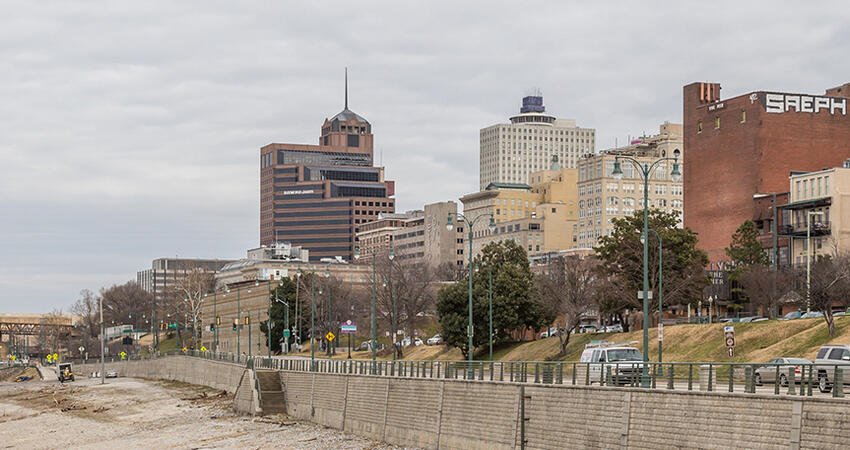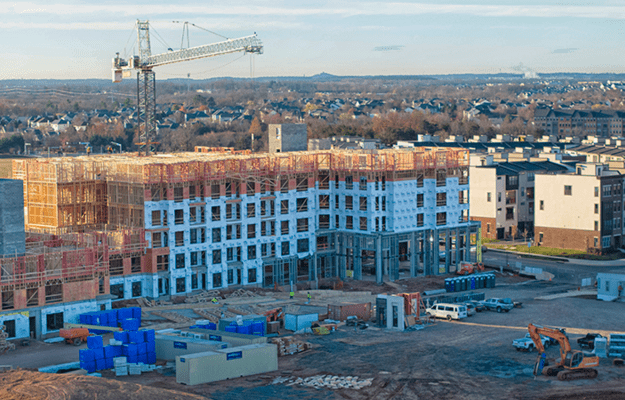
Memphis Expands Its Coordinated Campaign Against Blight
by Joseph Schilling
On the trip to and from school, many children in Memphis pass poorly maintained and dangerous properties. At least 9,500 single-family houses, 4,500 apartment units, and thousands of vacant lots in the city are blighted, affecting nearby residents and the city’s economy. A year ago, more than 150 community, civic, and public leaders and organizations came together for the city’s first summit on blighted properties. With support from Mayors of Memphis and Shelby County, the participants reaffirmed their collective commitment to “make all neighborhoods free from blight” by signing the nation’s first blight elimination charter that sets forth principles and goals to work across agencies, change the culture of blight, and test new strategies. In reflecting on this collaborative effort, it was critical for Memphis to have a trusted intermediary—Neighborhood Progress Inc.—leading and supporting the process and focusing the charter on community priorities and capacities.
The summit and charter launched actions by this cadre of Memphians that can be a model for other communities interested in launching a coordinated campaign against blight. Within six weeks of the summit, the city’s new Blight Elimination Steering Committee (BEST) started assessing current policies and programs to identify new ways for transforming how city and county agencies could improve their work, reform practices, and build new systems and partnerships to advance the charter’s goals. From these meetings, BEST developed an action plan that outlines priority actions organized around four working groups: (1) data and information systems; (2) engagement and partnerships; (3) strategic and efficient code enforcement; and (4) reclamation, reuse, and revitalization strategies. These four components are the foundation for a holistic, resilient approach to addressing blighted properties.
Access to data from multiple public agencies is the foundation for all interventions to address blighted properties. The Memphis Property Hub combines data about the costs and impacts of the area’s blighted properties as well as where they are located and who owns them. City, county, and community practitioners can access these under one data warehouse. The hub draws on both local and national expertise, such as Neighborhood Preservation Inc. of Memphis, Innovate Memphis, the Center for Applied Earth Sciences and Research at the University of Memphis, a member in the National Neighborhood Indicators Partnership at the Urban Institute, and connections with Policy Map and other key data intermediaries. As part of its strategy, the data working group plans to initiate a biennial citywide property condition inventory.
Capacity to investigate and enforce applicable state and local housing codes often remains difficult for communities to expand. After the charter, the city of Memphis added a full-time neighborhood preservation fellow to an existing neighborhood preservation law clinic at the University of Memphis Humphreys School of Law. Professors supervise a team of law students to act as the city’s code enforcement prosecutors appearing before the Shelby County Environmental Court and coordinating with two assistant city attorneys. The students develop problem-solving and investigation skills, and the city pursues more housing code violations. Now in its fifth semester, the clinic has trained more than 40 students and is supported by two professors and the fellow. Since the clinic was launched, it has filed 560 new lawsuits and has around 850 active lawsuits pending.
Memphis’s insights and blight-fighting lessons may resonate for other areas with similar struggles. This May, a select cohort of jurisdictions, including small and large cities, will send delegations of housing and code enforcement officials and municipal attorneys to spend two days in Memphis at a Strategic Code Enforcement Management Academy, sponsored by Neighborhood Preservation Inc. and the law school, with funding from the Kresge Foundation. The intensive executive workshop will help municipal officials grow their capacity to develop strategic approaches to code enforcement. Faculty will feature Memphis code enforcement leaders Steve Barlow and Patrick Dandridge and local environmental court judge Larry Potter, along with external code enforcement experts such as Michael Bravermen, acting housing commissioner from Baltimore. The academy provides the rare opportunity for participants to learn about strategic code enforcement management and about the work in Memphis, and for Memphis to learn from its peer communities.
Memphis is emerging as a national leader in waging a comprehensive and collaborative campaign against blighted properties. The charter and 2016 summit were catalysts for an impressive year of actions, from the launch of the Memphis Property Hub to the filing of hundreds of housing code lawsuits. With the code enforcement academy and second annual Blight Elimination Summit set for May, the city is poised to continue building an effective citywide approach to eliminate blight.
Joseph Schilling is a senior research associate at the Urban Institute.


